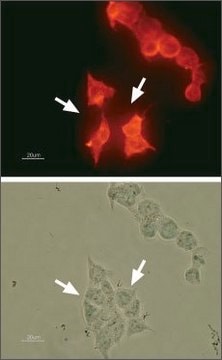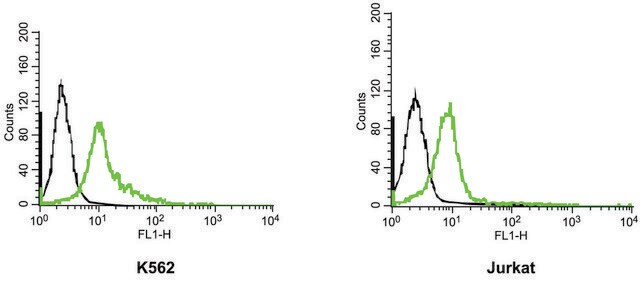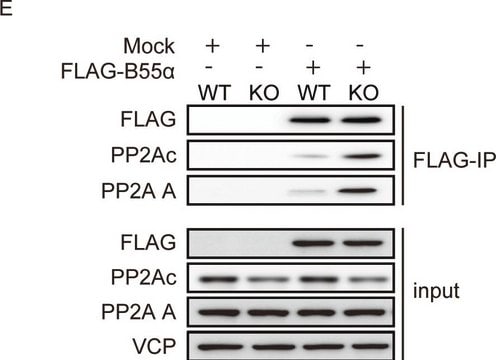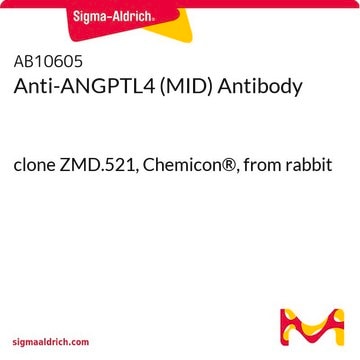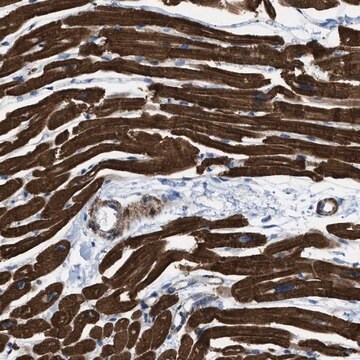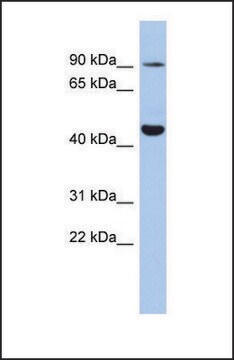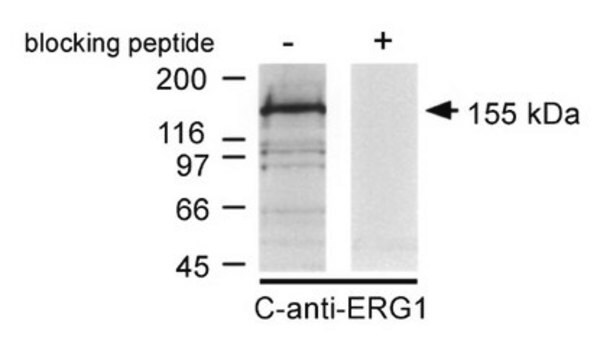AB5908
Anti-Potassium Channel HERG Antibody, CT
Chemicon®, from rabbit
Synonym(s):
Erg1, Kcnh2
About This Item
Recommended Products
biological source
rabbit
Quality Level
antibody form
affinity purified immunoglobulin
antibody product type
primary antibodies
clone
polyclonal
purified by
affinity chromatography
species reactivity
human
manufacturer/tradename
Chemicon®
technique(s)
immunocytochemistry: suitable
immunoprecipitation (IP): suitable
western blot: suitable
NCBI accession no.
UniProt accession no.
shipped in
wet ice
target post-translational modification
unmodified
Gene Information
human ... KCNH2(3757)
Specificity
Immunogen
Application
Neuroscience
Ion Channels & Transporters
Immunocytochemistry
Immunoprecipitation
Dilutions should be made using a carrier protein such as BSA (1-3%)
Optimal working dilutions must be determined by the end user.
Target description
Physical form
Storage and Stability
Analysis Note
CONTROL ANTIGEN: Included free of charge with the antibody is 120 μg of fusion protein (35 kD). The stock solution of the antigen can be made up using 100 μL of PBS. For negative control, preincubate 3 μg of fusion protein with 1 μg of antibody for one hour at room temperature. For positive control, use 20 ng of fusion protein per lane. Optimal concentrations must be determined by the end user.
Other Notes
Legal Information
Disclaimer
Not finding the right product?
Try our Product Selector Tool.
Hazard Statements
Precautionary Statements
Hazard Classifications
Aquatic Chronic 3
Storage Class Code
13 - Non Combustible Solids
WGK
WGK 3
Flash Point(F)
Not applicable
Flash Point(C)
Not applicable
Certificates of Analysis (COA)
Search for Certificates of Analysis (COA) by entering the products Lot/Batch Number. Lot and Batch Numbers can be found on a product’s label following the words ‘Lot’ or ‘Batch’.
Already Own This Product?
Find documentation for the products that you have recently purchased in the Document Library.
Our team of scientists has experience in all areas of research including Life Science, Material Science, Chemical Synthesis, Chromatography, Analytical and many others.
Contact Technical Service